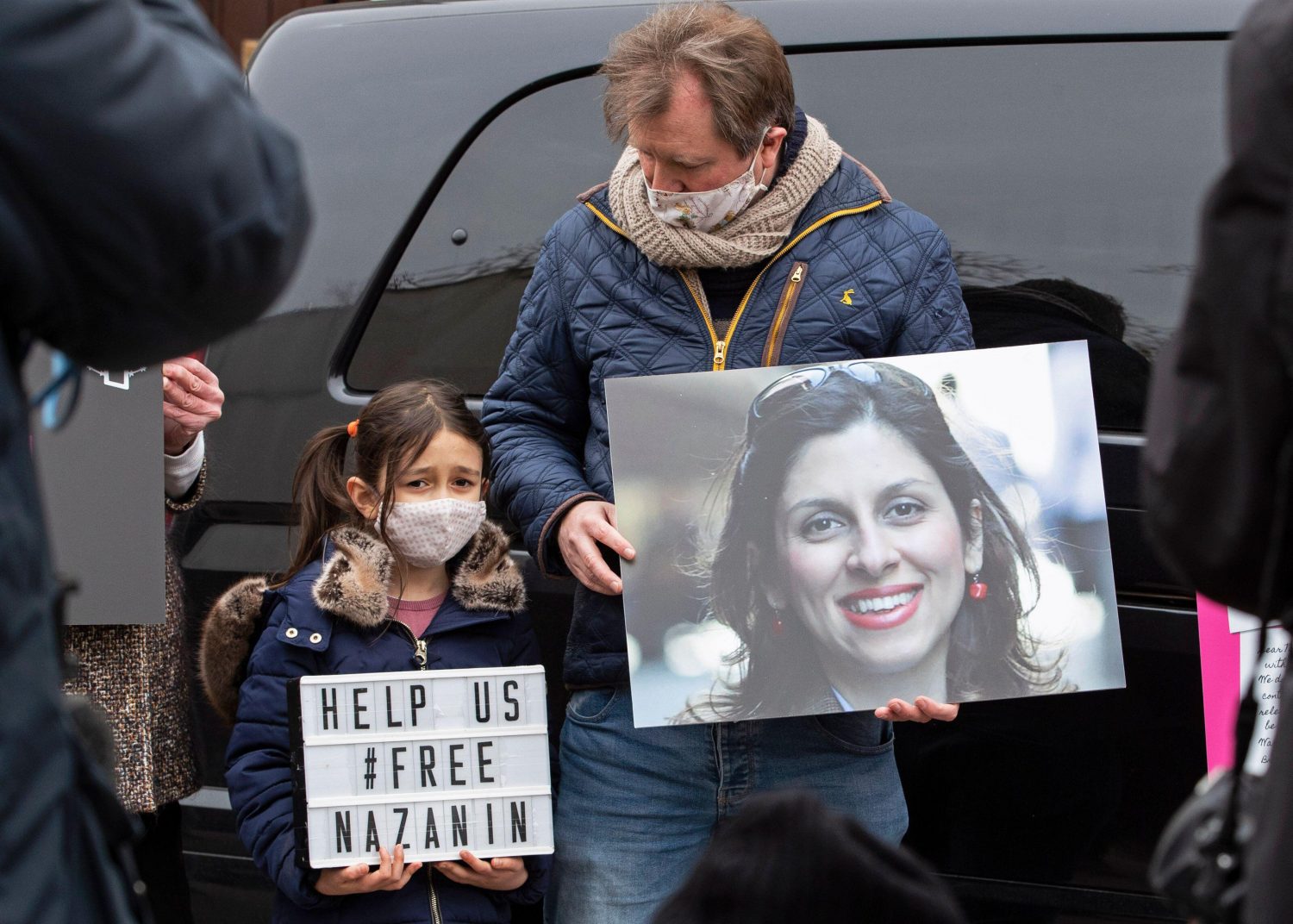
Richard Ratcliffe’s Hunger Strike Over UK Government’s Inaction Deeply Worrying
Today, Richard Ratcliffe, husband of Nazanin Zaghari-Ratcliffe, has begun his second hunger strike in two years to protest at the failure of the UK government to secure the return home of his wife, who has been arbitrarily detained in Iran since 2016.
Since Prime Minister Boris Johnson vowed to leave “no stone unturned” to bring Nazanin home in 2017, a pledge that has been repeated by four foreign secretaries who have dealt with her case, the diplomatic efforts do not seem to have been effective in securing her return to the UK.
Last Saturday, Nazanin lost an appeal against her second conviction in April – which sentenced her to a further year in prison and an additional one-year travel ban for the unfounded charge of “spreading propaganda against the regime”. Nazanin has already completed her initial five-year sentence, also for unfounded charges related to national security. While Nazanin has not yet been summoned to prison, it is unclear whether she will be returned to prison or house arrest with an ankle tag, or whether she will be left in limbo in Iran indefinitely.
Last month, REDRESS and the Free Nazanin Campaign submitted a dossier to the new UK Foreign Secretary, Liz Truss, asking her to take a more robust approach by recognising Nazanin and other foreign nationals arbitrarily detained in Iran as hostages, and to impose Magnitsky sanctions, including travel bans and asset freezes, on 10 Iranian officials involved in Iran’s hostage-taking.
Although the UK Foreign Secretary has spoken publicly in support of Nazanin, it is unclear what steps the UK government is taking since she took office to secure Nazanin’s release and hold perpetrators accountable. Notably, this month, while the hunger strike continues, the UK is due to host a high-level Iranian delegation at the United Nations Climate Change Conference, COP26, in Glasgow.
While reiterating Iran’s obligation to release those arbitrarily detained, REDRESS and the Free Nazanin Campaign have also urged the UK government on many occasions to pay a historic £400-million military debt that the UK owes Iran, as Nazanin has been told by Iranian officials that the payment of this debt is key to her release. Other countries such as the US and Canada have been more successful at securing the release of their citizens arbitrarily detained abroad through the payment of debts and prisoner swaps, and REDRESS has indicated that this could be done in the form of humanitarian and medical supplies.
Rupert Skilbeck, Director of REDRESS said:
“It’s deeply worrying that Richard Ratcliffe has felt compelled to resort once again to a life-threatening measure to bring attention to the desperate plight of his family. Five years on, we have only seen setback after setback. The UK government’s approach is clearly not working. It’s time to stand up to perpetrators of hostage-taking by sanctioning those who perpetuate this reprehensible practice, and to bring Nazanin home.”
For more information or for an interview, please contact Eva Sanchis, Head of Communications, on +44 (0) 7857110076 or [email protected].
Notes to editors:
- Nazanin is a British-Iranian charity worker who has been arbitrarily detained in Iran since she was arrested at a Tehran airport on 3 April 2016 after visiting her family. She remains separated from her husband and daughter, who live in the UK. In September 2016, Nazanin was sentenced to five years in prison for unfounded charges related to national security. While detained, she spent more than eight months in solitary confinement and was denied urgent medical treatment. She was released from house arrest on 7 March 2021 but was immediately re-tried for a second set of unfounded charges related to “spreading propaganda against the regime” on 14 March 2021. She was sentenced to a further one-year jail sentence and one-year travel ban on 26 April 2021. The sentence was upheld on appeal on 16 October 2021.
- Six United Nations Special Rapporteurs have previously found that Nazanin’s treatment may amount to cruel, inhuman or degrading treatment or torture. Following an independent physical and psychological evaluation by doctors, the International Rehabilitation Council for Torture Victims determined that its findings were “highly consistent” with allegations of torture and ill-treatment during Nazanin’s time in detention. REDRESS considers that Iran’s treatment of Nazanin constitutes torture under the UN Convention against Torture.
- REDRESS has campaigned for Nazanin’s release since 2016. Following a submission by REDRESS, the UN Working Group on Arbitrary Detention (UN WGAD) found in 2016 that her detention was arbitrary and requested Iran to release her. In August 2021, REDRESS and Doughty Street Chambers submitted a second complaint to the UN WGAD asking it to recognise and address Iran’s practice of state hostage-taking.
- In March 2019, following advocacy by REDRESS, the UK government took the exceptional step of escalating the matter to an inter-state dispute with Iran, through granting Nazanin diplomatic protection.
- REDRESS’s work on Nazanin’s case is carried out in collaboration with Prof John Dugard SC, Alison Macdonald QC and Dr Tatyana Eatwell.
Photo: Richard and Gabriella Ratcliffe during a protest in London to demand Nazanin Zaghari-Ratcliffe’s release (© Alamy Stock Photo).
